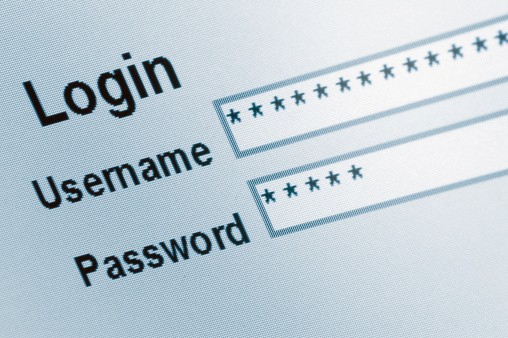In this new age of technology, access to online accounts has become an increasingly large part of our lives. If someone wants to check an email, update a Facebook status, tweet a celebrity, order a product, watch a TV show, or even manage one’s checking and billing information, creating an online account is almost always required. An essential element involved in this process is, of course, password protection.
The strength of a password has also become a topic of high importance. The threat of having information stolen from cybercriminals is a very real concern that affects anyone who maintains a variety of different accounts. In 2013, the average number of US identity fraud victims was 11,571,900 and the average financial loss per victim was around $4,930 (U.S. Department of Justice). The Microsoft Safety and Security Center is aware of these dangers and offers some information on how to construct a strong password. Many strong passwords are at least 8 characters long and include uppercase letters, lowercase letters, numerals, punctuation marks, and symbols. A complex password will make it more difficult for a cybercriminal to hack.

Microsoft, the Huffington Post, and Google also display a few helpful tips that remind us what NOT to do when generating a password:
- Don’t share passwords with others. If you have been hacked, this will open up the possibility for cybercriminals to attack the accounts of your friends and family members as well.
- Don’t use personal identity information. Using nicknames, pet names, phone numbers, or birthdates for passwords are more predictable and can be easily guessed by cybercriminals.
- Don’t use dictionary words. In previous years, it was determined that the word “password” itself was one of the most commonly generated passwords by users. This generic password would not be wise to use due to the fact that it has no variety. The self-explanatory nature of this password would also make it easy for cybercriminals to break into an account.
- Don’t base password protection on the name of a website or application. For example, it would not be a good idea to use “facebook” as the password to your Facebook account or “gmail” as the password to your Gmail account. Even though this method might be viewed as a simpler way to manage what password goes to what account, it is also dangerous in the sense that many people might want to use these same passwords for their own accounts. Therefore, cybercriminals would have the ability to hack into multiple accounts if they wanted to.
- Don’t use sequences. An example of a sequence would be “123456789” or “222222222.” Common number patterns may be convenient to quickly type in, but cybercriminals typically factor in the idea of convenience when trying to hack an account.
- Don’t use commonly generated passwords. This makes your personal information extremely vulnerable. Avoiding the more common passwords are important basics to know regarding online security. A compiled list of these weaker passwords can be found at Huffington Post.
- Don’t use the same password for every account. Even though this is a way to ensure that you won’t forget your account login information, you are also putting all your information at a big risk with this method. If a cybercriminal was able to determine your password for just one account, he would then, simultaneously, gain access to all of your other accounts as well.

However, it is still important to be cautious and trust the site you are using, because information could easily be leaked if your passwords were placed in the wrong hands. If possible, do not use these sites to create passwords for bank account information, or any account that could be critically damaging if hacked.
Another way to protect yourself is by having a phone number linked to your accounts (Google Online Safety). If you forget your password, a lot of websites will send your password information directly to your phone. This way, cybercriminals will not be able to gain access to your password information. Having passwords sent to an email account is another way many websites retrieve any forgotten passwords. This can also be helpful, but it is important to make sure that the email account in the website’s file is up-to-date and can still be accessed solely by its user.
Living in a time with vast technological advances can open the doors to so many more possibilities, but it is still important to remember the rules behind online safety. There are limitations and precautions one must take when exploring the world-wide web. So, if you want to avoid any unwanted access to your personal information, make sure that your password is protected!
